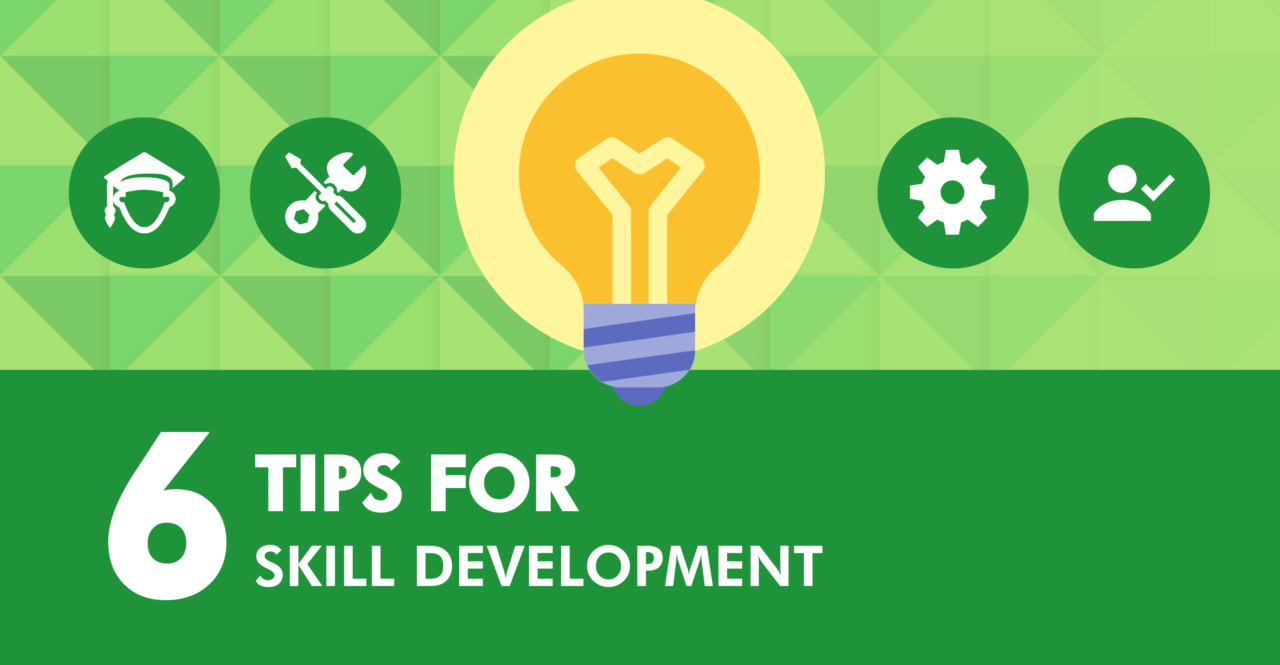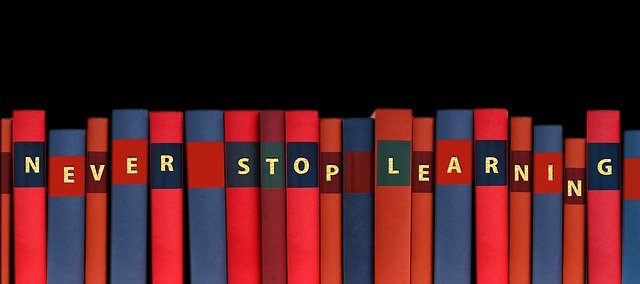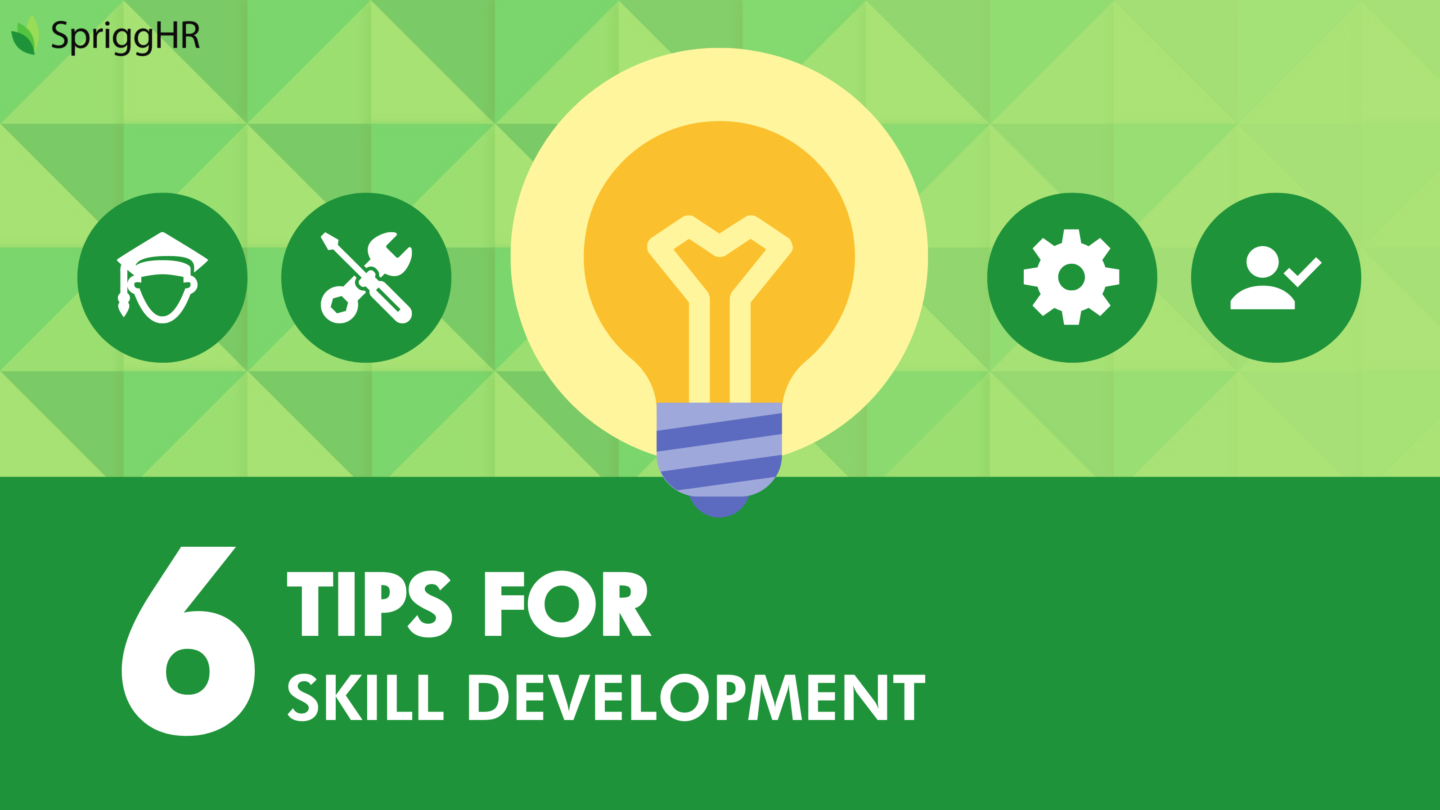
6 Skill Development Tips to Fast-Track Your Career Path
What is Skill Development?
Skill development is a personal practice that can escalate your career path.
Skill development refers to the process of developing the ability to execute complex activities or job functions through deliberate, systematic, and sustained effort. Skill development allows for the successful completion of tasks involving ideas (cognitive skills), things (technical skills), and/or people (interpersonal skills).
In short, it is the process of first identifying your skill gaps, and then developing and honing these skills. The set of skills you possess will determine your ability to execute your tasks with success, so identifying the gaps and working to fill them is essential in order to have the right toolset to succeed.
In goal achievement, your skills are your tools. Without the right skills under your belt, you will only frustrate yourself, waste precious time, and spend most of your efforts dealing with rudimentary obstacles caused by the lack of knowledge or skills. Facing difficulties and challenges is part of any goal pursuit, however, when you don’t possess the right set of skills, you will find yourself struggling far more than what is necessary. Even worse, the struggle is unconstructive, and inhibits you from moving forward.
Identifying Skill Gaps
Despite how integral skill development is to consistent success, it often goes neglected by many employees and is less often encouraged by managers. This happens largely for two primary reasons:
1. People are impressed by the accomplishments of others without acknowledging what they had to go through to get there. By only focusing on the end result, people make assumptions about what it takes to succeed, and then become disappointed when their attempts to reach the same goal are proven harder than they anticipated them to be.
2. People are too self-critical, recognizing the success of top performers and concluding that they will never achieve the same. By reducing others’ success to some sort of unique ability that is never within their grasp, people begin to view success itself as something not viable in their own future.
The flaw in both ways of thinking is the rejection of considering the role that skill development played in the success of others. While the end results are evident, we don’t see the hours spent behind the scenes, where those successful people honed their craft and built up their skills in order to succeed.
Skill Development: Hard & Soft Skills
In order to identify your own skill gaps, it can be helpful to break up the broad description of “skills” into two categories: hard skills and soft skills.
Hard skills are any skill relating to specific tasks. These skills are usually easy to quantify, as they tend to be knowledge-based, such as proficiency in a subject, certification, and technical skills. Examples of hard skills include fluency in a language, skills in a specific software, programming, graphic design, and so on.
Soft skills are skills relating to personality and tend to be transferable. This can include communication, leadership, stress management, time management, decision making, organization, adaptability, and networking.
The importance of hard skills is obvious. Any success in a goal is at least partially dependent upon your domain-level knowledge. To be a good journalist, you should have strong writing skills. To be a good software engineer, you need to understand programming. To be a successful lawyer, you need to be proficient in legal research and client service.
Where most people fall short is in their soft skills. While hard skills boost your chances of case-specific success, soft skills are what helps you to find, attract, and retain clients and regularly achieve success. That is not to say you should focus on developing soft skills over field-specific knowledge, but rather to value transferable skills as much as hard skills.

6 Skill Development Tips
1. Begin with the Core Skills
When starting from scratch, learning a brand-new skill can seem intimidating, as there are often a multitude of specific details to learn, hone, and master. To make this process seem less daunting, start with the core skills involved, focusing on the secondary skills afterward.
- Core Skills: skills necessary to succeed in your goal. These have a direct impact on your success.
- Secondary Skills: skills that accentuate your success, but do not make or break your goal.
If a skill has a critical, make-or-break impact on your goal, it is considered a core skill. By dedicating the bulk of your time mastering the core skills, then refining secondary skills once the foundation has been laid, you increase your chances of success.
2. Break Your Learning into Smaller Steps
With each new skill, whether core or secondary, hard or soft, learning comes easier when it is broken down into smaller steps.
A good approach to this might be to identify the sub-skills involved in whatever goal you are trying to achieve. For example, if you want to become a successful blogger, the sub-skills might include writing, photo editing, networking, marketing, and self-discipline. Once the sub-skills have been defined, try ranking yourself from 1-10 based on your pre-existing skill level in each category. Then, focus your time on improving wherever necessary, making sure to regularly check in with your progress and identify which areas you are succeeding in, and which areas need more work.
Skill development can seem like a lofty undertaking when considering the bigger picture, so break the process up into smaller, more achievable steps. Don’t expect yourself to master each component right away, but instead focus on conquering and mastering each section slowly.
3. Learn from Others
The strength in learning through example cannot be understated, especially when it comes to developing skills necessary for success in a specific goal. By understanding the process from someone who has already gone through it, and succeeded, you can follow their wisdom and be made aware of the potential obstacles you might encounter.
Some ways to go about learning from the best include:
- Asking yourself, who are the people you know that already have experience in this area? Approach them and ask them for advice or guidance. Question them on how they built their skill in this area, whether they have any constructive tips for you, and what you should keep an eye out for along the way.
- Engage a coach. This isn’t always the cheapest option, but if the resources are available to you, a job-specific coach can help you to quicken the pace of your learning.
- Get a mentor. This can be a senior in your company, or someone in your network of contacts, who has prior experience and would be willing to be a mentor for you throughout the process.
- Study the experts in the industry. Recognize the experts, those who have succeeded to the umpteenth degree, and study them to identify what it is specifically that makes them so good at what they do. Model your behavior after them, adapting it to fit you and your own work ethic and efforts.
4. Do Your Research
Research your goal thoroughly, gathering different insights and perspectives into how success can be achieved in the objective. There are several tools you can use to gain a comprehensive understanding of your goal and the skills involved in achieving it, which can be extremely beneficial in the process of skill development no matter the task in question. Some resources include:
- Books. These are structured forms of content, communication a curated collection of the author(s)’s best wisdom on the topic.
- Podcasts. A more modern form of research, podcasts discussing the topic in detail and speaking with experts and moguls in whatever it is you are trying to achieve can be helpful in honing your understanding of the skill development needed to succeed.
- Blogs. These can include any article, opinion piece, or informative and reliable blog post that offers insight into the topic at hand. Using basic search engines to search for information, and subscribing to blogs that seem promising, can be a helpful way to compile information on your subject.
5. Attend Training Sessions
Courses and workshops are a tried and true method of developing skills. They act as a concentrated, structured source of information, organized into a program specifically designed for your learning. Depending on the type of workshop you attend, many rely on activities for experiential learning. This presents the opportunity to get hands-on practice, rather than learning through theory via your research. Additionally, learning in a training environment means you are surrounded by peers with like-minds and similar goals. This can be extremely beneficial in maintaining your motivation, and developing a social support system in the achievement of your goal.
When researching workshop opportunities, be sure that the training sessions you choose to attend are comprised on reliable, valid content, and are led by a credible trainer. Ask for an overview of the course curriculum to get a better sense of whether the course is filled with fluff, or whether it will be beneficial in your skill development.
6. Act
None of the above-mentioned tips will work in your skill development until you are ready to put them into action. The “doing” of course depends on the skill you are trying to build. If you’re learning to program, for example, the “doing” or what you could view as the metric, would be writing code yourself, creating simple programs, and testing them.
While the action phase is likely the scariest phase of them all, it is ultimately the most rewarding part. The part of your learning where you engage directly with what you’ve been theoretically researching is the phase where the results become tangible. It is when you get out of your comfort zone and truly jump-start your learning. The mantra of practice makes perfect could not be more applicable. The more hours you put in to honing and practicing your skill, the better you will become.
The Importance of Skill Development
You cannot do things the same way and expect different results. In order to see or experience real change, you first need to be able to do things differently. In an organization, and in one’s own personal work life, skill development is critical to success. It enables you to think of what you do, not to see it as just a job, but a career. By grooming and developing the skills necessary for success, you soon learn that what you are working towards is more than just a job or a means to an end.
Growth is incredibly important, both personally and in an organization. In order to grow, every individual must be willing to continue to learn. This can only be done through skill development.




